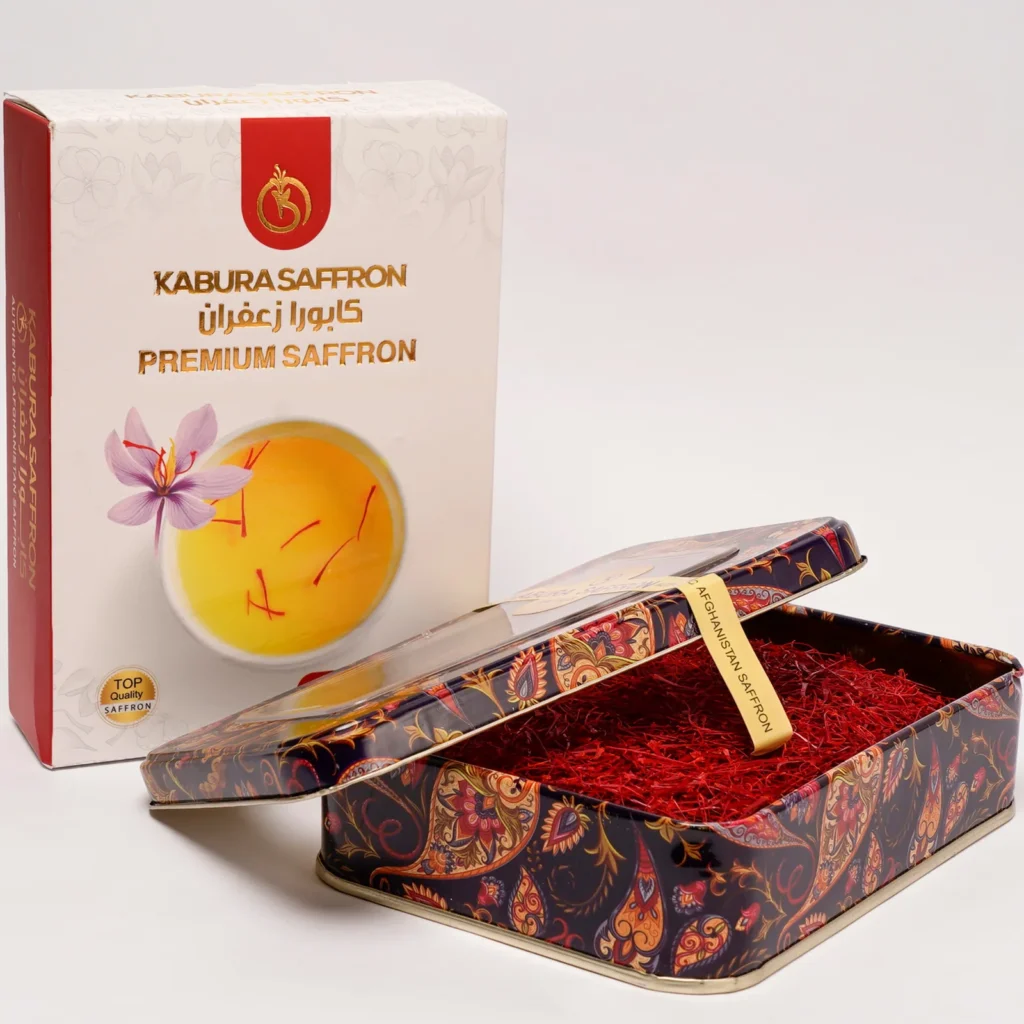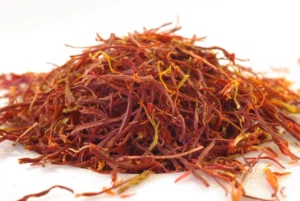



Saffron, known as the “golden spice,” has been cherished for centuries not only for its unique flavor and vibrant color but also for its numerous health benefits. Derived from the flower of Crocus sativus, saffron threads are the stigma of the flower and are harvested by hand, making it one of the most expensive spices in the world. In this blog, we will explore the incredible properties of saffron and how it can enhance your health and wellness.

One of the most notable benefits of saffron is its high antioxidant content. Antioxidants are compounds that help neutralize harmful free radicals in the body, reducing oxidative stress and the risk of chronic diseases. Saffron contains several powerful antioxidants, including:
• Crocin: Known for its anti-inflammatory and anti-cancer properties, crocin is responsible for Safran’s vibrant yellow color.
• Safranal: This compound contributes to Saffron’s distinct aroma and has been linked to various health benefits, including mood enhancement.
• Picrocrocin: This component is responsible for Saffron’s taste and may have anti-inflammatory and anti-depressant effects.
Saffron has been used traditionally to uplift mood and improve mental health. Studies have shown that saffron may help alleviate symptoms of depression and anxiety. It is thought to increase levels of serotonin, a neurotransmitter that plays a key role in regulating mood.
In fact, some research suggests that saffron can be as effective as conventional antidepressants in treating mild to moderate depression. Adding saffron to your diet may not only enhance your meals but also promote a sense of well-being.
Saffron has been recognized for its digestive properties for centuries. It may help stimulate digestion, alleviate bloating, and improve overall gut health. The anti-inflammatory properties of saffron can also aid in reducing gastrointestinal discomfort. Adding a pinch of saffron to your meals can enhance flavor while supporting digestive health.
Chronic inflammation is linked to a variety of health issues, including heart disease, diabetes, and cancer. Saffron possesses potent anti-inflammatory properties that may help combat inflammation in the body. The active compounds in saffron can help reduce markers of inflammation, making it a valuable addition to a balanced diet.
Saffron may also play a role in promoting eye health. Research has shown that saffron can improve vision and may help prevent age-related macular degeneration (AMD), a leading cause of blindness in older adults. The antioxidants in saffron, particularly crocin, are believed to protect the retina and enhance visual function.
Saffron has been traditionally used as an aphrodisiac, and recent studies support this claim. It may help improve libido and sexual function in both men and women. In men, saffron has shown potential in enhancing erectile function, while in women, it may help alleviate symptoms of sexual dysfunction.
The antioxidant and anti-inflammatory properties of saffron make it beneficial for skin health as well. Saffron can help improve skin tone, reduce acne, and diminish blemishes. It may also promote a natural glow and help in the treatment of various skin conditions. Many beauty products now incorporate saffron for its rejuvenating properties.
Saffron may support heart health by improving blood circulation and reducing blood pressure. The antioxidants in saffron can help protect the heart from oxidative stress and inflammation, contributing to overall cardiovascular wellness. Regular consumption of saffron-infused foods may help maintain a healthy heart.
How to Incorporate Saffron into Your Diet
Incorporating saffron into your diet is easy and can add both flavor and health benefits to your meals. Here are a few simple ways to enjoy saffron:

• Saffron Tea: Steep a few strands of saffron in hot water for a soothing and fragrant tea.
• Culinary Dishes: Add saffron to rice dishes, stews, and sauces for a rich flavor and beautiful color.
• Desserts: Use saffron in desserts like custards, puddings, and ice creams to elevate their taste.
• Infused Oils: Create saffron-infused oil to drizzle over salads or use in marinades.
Saffron is more than just a spice; it’s a treasure trove of health benefits. From its antioxidant properties to its potential in enhancing mood and supporting heart health, incorporating saffron into your diet can be a delicious way to boost your overall wellness. As with any supplement, it’s essential to use saffron in moderation and consult with a healthcare professional if you have any health concerns. Embrace the golden spice and discover the myriad ways it can enrich your life!